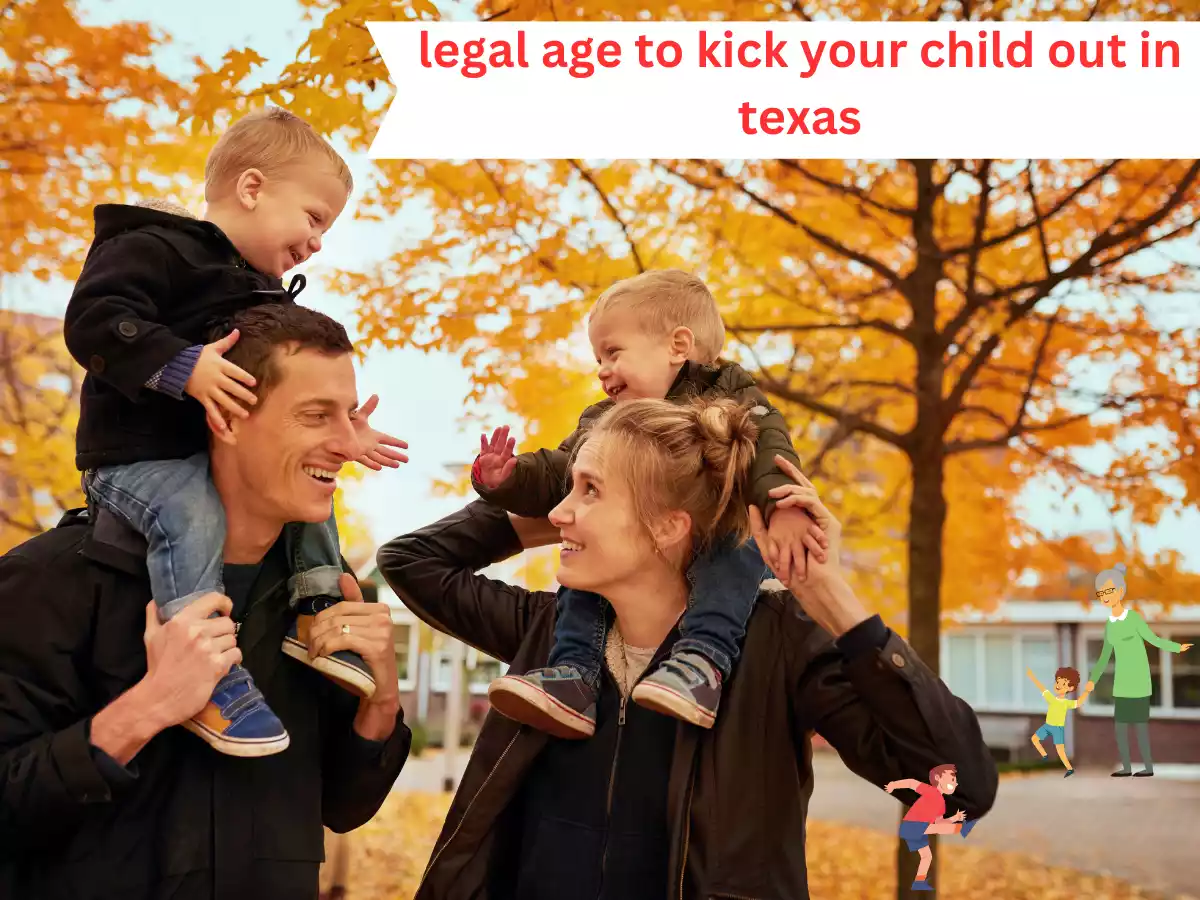Parenting comes with a range of responsibilities and legal considerations, including when a child becomes an adult in the eyes of the law. One frequently asked question is about the legal age at which parents can “kick out” their child in Texas. This article dives into the legal aspects, parental obligations, and the importance of transitioning to adulthood responsibly.
Introduction: legal age to kick your child out in Texas
As children grow and approach adulthood, questions arise about the responsibilities of both parents and their maturing children. One such question is about the legal age at which parents can require their child to leave home.
The Legal Age of Majority in Texas
Emancipation and Legal Adulthood
In Texas, the legal age of majority is 18. At this age, individuals are considered adults and are entitled to make their own decisions. Parents no longer have the legal obligation to provide for their basic needs, although many parents choose to continue supporting their children as they pursue higher education or employment.
Parental Responsibility
Providing Basic Necessities
Parents have a legal duty to provide for their children until they reach the age of majority. This includes providing shelter, food, clothing, and other basic necessities that contribute to a child’s well-being and development.
Child Support Obligations
If a child is attending school and remains dependent, child support obligations may continue beyond the age of majority. Child support orders are determined based on factors such as the child’s needs and the parent’s financial situation.
Emphasizing a Smooth Transition
Preparing for Adulthood
While there is a legal age of adulthood, the transition to independent living is best approached gradually. Parents can play a vital role in preparing their children for adulthood by teaching life skills, financial literacy, and responsible decision-making.
Open Communication
Open and honest communication between parents and their maturing children is crucial. Discussions about future plans, educational pursuits, and financial independence can lead to a smoother transition.
Addressing Complex Situations
Considerations for Parent-Child Relationships
Every family’s situation is unique, and there may be circumstances where a child faces challenges that make an immediate transition to adulthood difficult. In such cases, parents may need to balance legal considerations with compassion and support.
Legal Consultation
In complex situations, seeking legal advice is recommended. Legal professionals can provide guidance on parental rights, child support, and any legal implications of decisions related to housing and financial support.
Community Resources and Support
Assistance for Youth in Transition
There are community resources and organizations that offer support for young adults in transition. These resources can provide guidance on housing, education, employment, and other aspects of independent living.
Counseling and Guidance
Counseling services can be beneficial for both parents and young adults navigating the transition to adulthood. Professional guidance can help address emotional and practical challenges.
Conclusion
The legal age to “kick out” a child in Texas is when they reach the age of majority, which is 18. However, responsible parenting involves more than adhering to a legal age. Parents have a vital role in preparing their children for independence and providing support during the transition to adulthood.
FAQs
- At what age can parents legally ask their child to leave in Texas?
Parents are no longer legally obligated to provide for their child’s basic needs after they reach the age of 18, the legal age of majority in Texas. - Do parents have to continue supporting their children after they turn 18?
Parents may choose to continue supporting their child, especially if the child is pursuing education or facing challenges that require additional support. - Are there situations where child support continues beyond the age of majority?
Yes, if a child is attending school and remains dependent, child support obligations may continue. - How can parents help their child transition to independent living responsibly?
Parents can teach life skills, financial literacy, and engage in open communication about future plans. - What resources are available for young adults transitioning to independence?
Community resources, organizations, and counseling services can provide guidance and support for young adults in transition.























